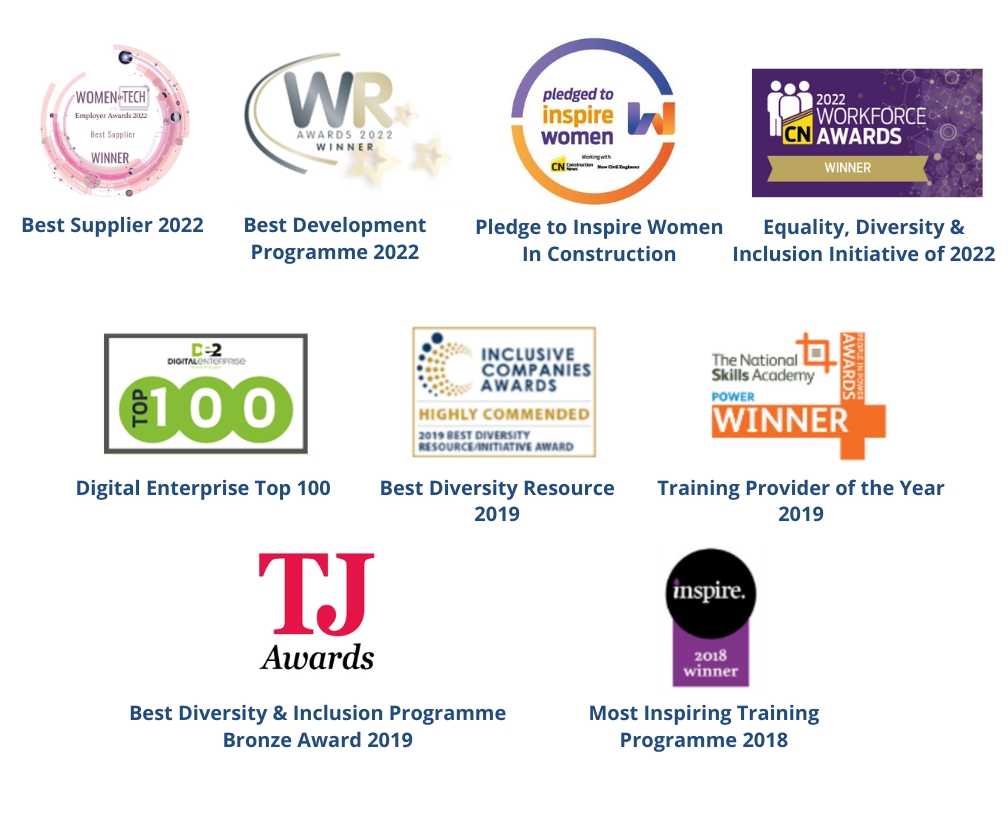One of our fabulous delegates on the THRIVE programme recently shared her thoughts after attending Day 1, Inclusion Allies.
Jo Rigby, the Head of Learning and Talent Development at Atkins wrote a blog about what she learnt and also set up her first ally meeting!
She’s very kindly shared her blog with us and we’re delighted that Atkins are continuing to support their diverse talent through THRIVE and their Global ED&I programme, “Difference makes a Difference.”
Hi everyone
We are fast approaching our 2022 ED&I week 3rd to 7th Oct which will again support our ambitions through our Global ED&I program, “Different makes a Difference”. A key part of this program is allyship.
I’m, as we would say in L&TD ‘in the driving seat’ in my pursuit of educating and learning all I can in the ED&I arena and allyship caught my mind. I attended the Inclusion Allies (THRIVE) programme yesterday. The programme was a full day programme which included Allies (me) as well as people who are attending the THRIVE programme. THRIVE is our Positive Action Career Development Programme designed to level the playing field for diverse talent and increase allyship within the organisation. The programme objectives included what allyship means, understanding more about unconscious bias, micro-aggressions, how to ‘call out’ behaviours that are simply not right, tools, techniques, stories (lots of them) and discussion – the whole day was enjoyable and I learned so much. I’m still reflecting and I want to share my reflection and learning with you, in the hope that you may be inspired to learn more and take note of some of the actions to be an ally yourself.
I did some reading before the programme. I wanted to challenge my own assumptions on what I knew (after all that’s good behaviour of an ally – right?) My research before the programme uncovered a great quote: a great ally is conscious of their privilege or influence and uses it to uplift others’ voices.
In the programme we looked at why is allyship so important:
| For individuals | For teams | For the organisation |
|---|---|---|
| 1. Feeling valued
2. Belonging 3. Feeling safe and an environment to learn |
1. Positive connection
2. Productivity 3. Sense of belonging |
1. Higher retention
2. Reduced negative impacts of bias |
The facts:
So…what is an ally?
The simple definition of the word ally is a person who helps and supports another person. But, if taken a little further in the context of inclusivity, an ally becomes a person who actively and deliberately strives to endorse an inclusive culture through positive action. Allies usually do not belong to the group whose rights they are endorsing. However, in the workplace, allies can champion ED&I by advocating and supporting their colleagues who are not heard, undervalued, or underrepresented. They can create safe spaces to express fears, frustrations, and voice other needs. They can also help to include their underrepresented peers in conversations and enable them to get opportunities they may not otherwise have had. Hence, they can be formidable advocates of change. Allyship can also help promote a positive work culture by fostering empathy and teamwork and building morale.
This TED talk shares some fantastic tips on ‘what to do’ to be an ally: Melinda Briana Epler: 3 ways to be a better ally in the workplace | TED Talk
Some of the teachings from the video are:
Do no harm
Advocate for under-represented groups
Change someone’s life significantly
It’s often the little things that create the greatest gain. The feeling of being valued, important, seen, heard. The difference in “seeing the human first – not the human characteristic…”(very powerful).
We need to look out for when we get this right and applaud the positive actions #WOW
It takes an infinite amount of courage to stand up and call out behaviours (to an established system). Applaud those brave enough to call out inequalities and inappropriate behaviour and stand up for their peers. When employees see that the allies’ actions are appreciated and encouraged, they will automatically be inspired to be allies too.
Join in the celebration
Celebrations have a way of bringing people together. Therefore, promote a culture that celebrates being different (#Differentmakesadifference). An easy way to do this is by observing and enjoying various relevant festivals, special days etc. together. Use these days to have fun, bond, or pay tribute to the minority groups and learn more about them, their culture, and their issues.
I hope you have enjoyed my share and summary and in some small way, helped you to think about how you too, can be an ally.
Photo by Clay Banks on Unsplash
